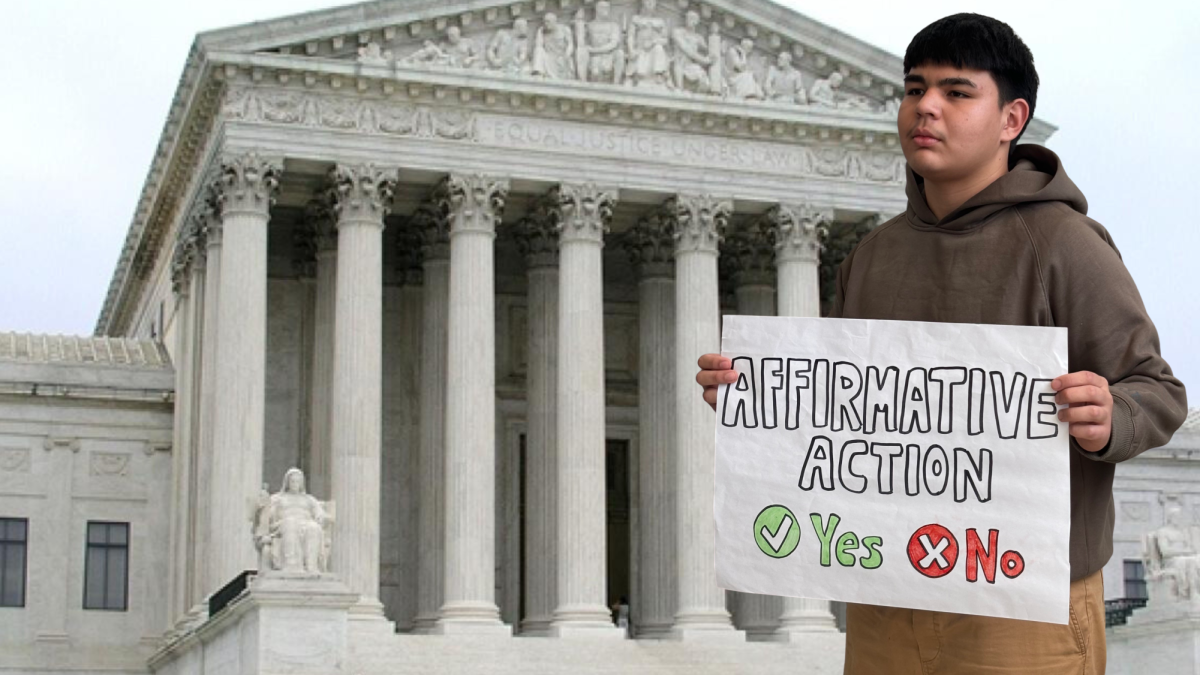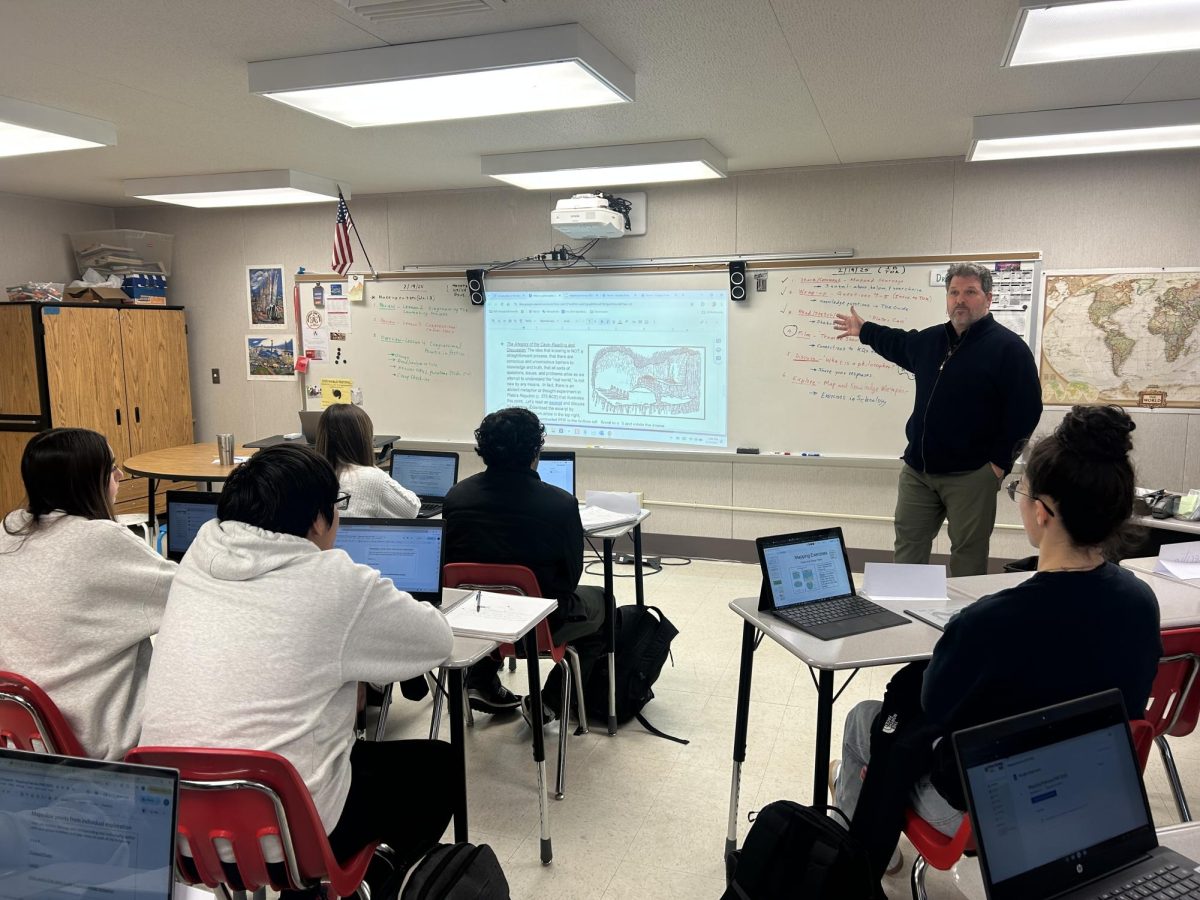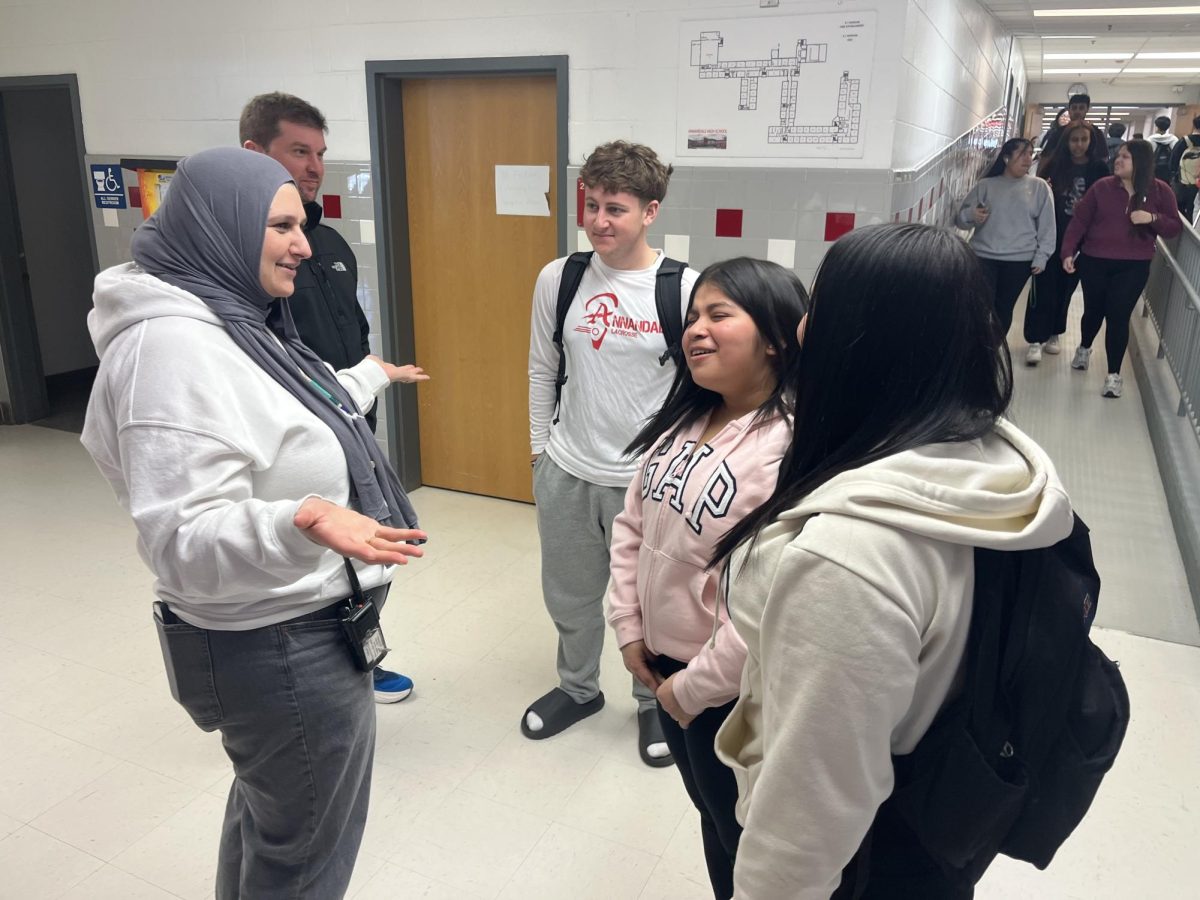Colleges are no longer allowed to ask for an applicant’s race. In a 6-3 decision issued on June 29, 2023, the Supreme Court announced the end of affirmative action. Colleges, however, are still able to ask applicants how their race specifically affects their personal life or characteristics.
“A lot of colleges have questions specifically asking about how students can contribute to the diversity on campus. How can students get along with people who have different beliefs and backgrounds and cultures,” said AVID teacher Laura Wells.
Chief Justice John Roberts wrote the deciding opinion, stating that “Many universities have for too long…concluded, wrongly, that the touchstone of an individual’s identity is not challenges bested, skills built, or lessons learned but the color of their skin.”
While the court’s majority opinion may argue that certain races should not be given an advantage, there are still many other factors in place that are related to identity, including legacy associations and geographic location.
Many argue that this action poses a threat to minority applicants who may not be able to access the same opportunities as their more privileged counterparts, making it more difficult for them to be accepted into the colleges of their choice.
“We want as many opportunities as possible to level the playing field. I hope that this particular one is not going to make as much of a difference as we fear,” AVID Teacher Laura Wells said.
Colleges have attempted to bypass this restriction by creating supplemental essay questions that offer opportunities to discuss race-based experiences. For instance, a short answer prompt given by Virginia Tech states, “Have you had an experience when you or someone you know were not being included? Did you reach out to anyone for assistance, direction, or resources? Were you able to affect change and/or influence others? Did this experience change your perspective and if so, how?”
This is just one example of how colleges and universities value having a diverse student body and looking for ways to achieve it.
Nevertheless, parsing these answers for so many applicants is a complex task, and there has already been a drop in diversity at large state colleges and elite private universities due to the inability to easily scan applications for race.
“Big state schools have a high volume of applications they have to sort through and they are more likely, my guess, to have a numerical formula and certain things that they are looking for to mark applications.” Wells said.
According to The Daily Progress, The University of Virginia’s class of 2028 has most significantly seen a decrease in Asian American students by 21.6% from 42.4% last year, and a decrease in the percentage of African American students by roughly one percent, now making up 7.2% of their current first-year students. The demographics of the University of Harvard’s class of 2028 compare similarly to those of UVA.
Much can be lost when schools lack diversity. Twelfth-grade English teacher McClain Herman comments on this, “I know from working at Annandale and other schools that there is a lot of value in a variety of perspectives and students learn more when opinions and experiences are varied, so clearly something is lost if a population in a classroom community becomes less diverse.”
What does this mean for Annandale seniors who are ready to apply to colleges?
“I think there are a lot of factors that go into whether or not the process is fair and race is just one of many factors that go into it,” Wells said. “I hesitate to say that this one thing is going to make the difference because I think there are so many factors that go into it. Some of which may play an even bigger role when you look at it,”
Wells notes that a student’s transcript, GPA, courses taken, and their performance in their classes will stay the driving factors in the admissions process.
“Based on who they are [selecting] or not, I think [the removal of affirmative action] will [create] an equal chance for everybody regardless of their race. There will not be biased opinions or anything like that,” senior Yassin Hafid said.
Interestingly enough, Wells has not changed her teaching tactics since the ruling.
“I’ve never asked students to specifically consider their race but in all of the college essay prompts it comes up. Our experiences are part of who we are and that is just a given,” Well said.
She advises that students highlight all aspects of their character while writing their college essay and ensure that for each supplemental essay, they show different perspectives of themselves to overall paint a well-rounded version of who they are.
However, Wells personally feels that “[race] should absolutely be considered as part of college applications. Colleges look at all kinds of different things. Why wouldn’t they look at that thing? That doesn’t make any sense to me.”








